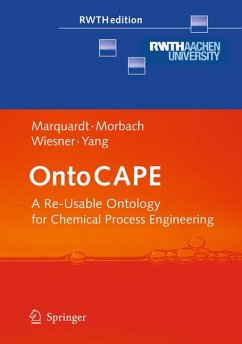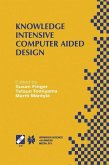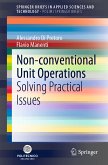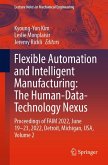This book presents OntoCAPE, a formal domain ontology for chemical process engineering, which is based on a general upper ontology for engineering. The organization and structure of the ontology are depicted, and the conceptualizations of various topic areas are described in detail, including the areas of mereology, topology, systems theory, network systems, plant engineering, and others. Additionally, the rationale for choosing one particular conceptualization over the other is explicated, thus providing the reader with the necessary background knowledge for extending and customizing the ontology to his/her own purposes.
Finally, the usage of the ontology is explained, and some sample applications are presented.
Dieser Download kann aus rechtlichen Gründen nur mit Rechnungsadresse in A, B, BG, CY, CZ, D, DK, EW, E, FIN, F, GR, HR, H, IRL, I, LT, L, LR, M, NL, PL, P, R, S, SLO, SK ausgeliefert werden.









